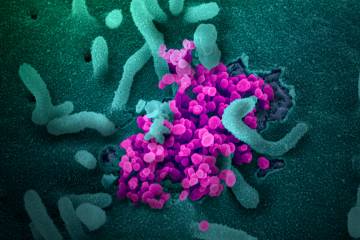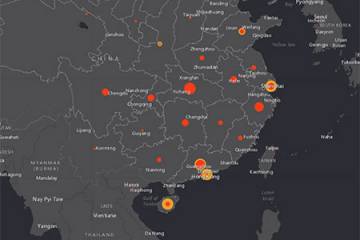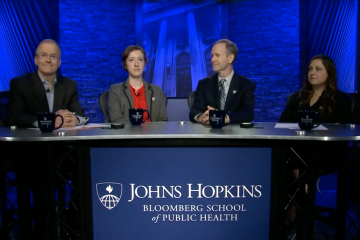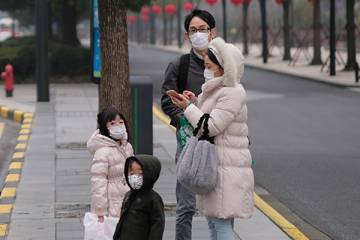In a news conference Wednesday night about the global coronavirus outbreak, President Donald Trump cited a Johns Hopkins study that determined that the U.S. is more prepared to deal with a pandemic than any other country in the world.
Video credit: C-SPAN
"Johns Hopkins, highly respected, … they did a study, comprehensive, the countries best and worst prepared for an epidemic," Trump said in the White House briefing room. "And the United States, we're rated No. 1."
The study he referenced is a report issued in October called the Global Health Security Index, the first-ever comprehensive ranking of 195 countries on their pandemic preparedness. Though the U.S. does sit atop the rankings, overall the report—produced by the Johns Hopkins Center for Health Security at the university's Bloomberg School of Public Health, the Nuclear Threat Initiative, and The Economist Intelligence Unit—paints a discouraging picture of global readiness.
"National health security is fundamentally weak around the world," the 324-page report concludes. "No country is fully prepared for epidemics or pandemics, and every country has important gaps to address."
To develop the index, a process that took two and a half years from start to finish, the project team created a framework of 140 questions, organized into six categories and 34 indicators to assess a country's capabilities. Out of a possible score of 100, the average score of all countries assessed was 40.2.
The U.S. scored 83.5 and ranked No. 1 in five of six categories: prevention, early detection and reporting, rapid response and mitigation, sufficient and robust health system, and compliance with international norms. It ranks 19th in overall risk environment and vulnerability to biological threats, a category that assesses political and security risk, socioeconomic resilience, the adequacy of infrastructure, environmental risks, and public health vulnerabilities that may inhibit a country's ability to prevent or respond to an epidemic or pandemic.
The report offers 33 recommendations to address the gaps identified in the report, including:
- The UN Secretary-General should call a heads-of-state-level summit by 2021 on biological threats, including a focus on financing and emergency response
- National governments should commit to take action to address health security risks
- Health security capacity in every country should be transparent and regularly measured, and results should be published at least once every two years
- Leaders should improve coordination in insecure environments, especially linkages between security and public health authorities
"COVID-19 is the latest global reminder of the power of infectious disease outbreaks to cause significant harm to health, peace, and prosperity if countries are not adequately prepared," said Jennifer Nuzzo, senior scholar at the Center for Health Security and one of the co-leaders of the GHS Index project. "It is important that national leaders recognize these threats and commit to increasing and sustaining countries' capacities to prevent, detect, and respond to these events."
The current outbreak of novel coronavirus, or COVID-19, is responsible for more than 82,000 confirmed infections and 2,800 deaths worldwide, according to data collected by the Johns Hopkins Center for Systems Science and Engineering. The vast majority of those cases are in China, where the outbreak originated, but cases have been confirmed in at least 47 other countries, including 60 in the United States.
It was useful and important for @CDCgov to say today that it is no longer a question of whether coronavirus will spread in US, only a matter
— Tom Inglesby (@T_Inglesby) February 26, 2020
of when. This kind of direct statement was necessary to
motivate pragmatic preparedness action around the country. 1/x
Posted in Health
Tagged global health, infectious disease, center for health security, coronavirus











